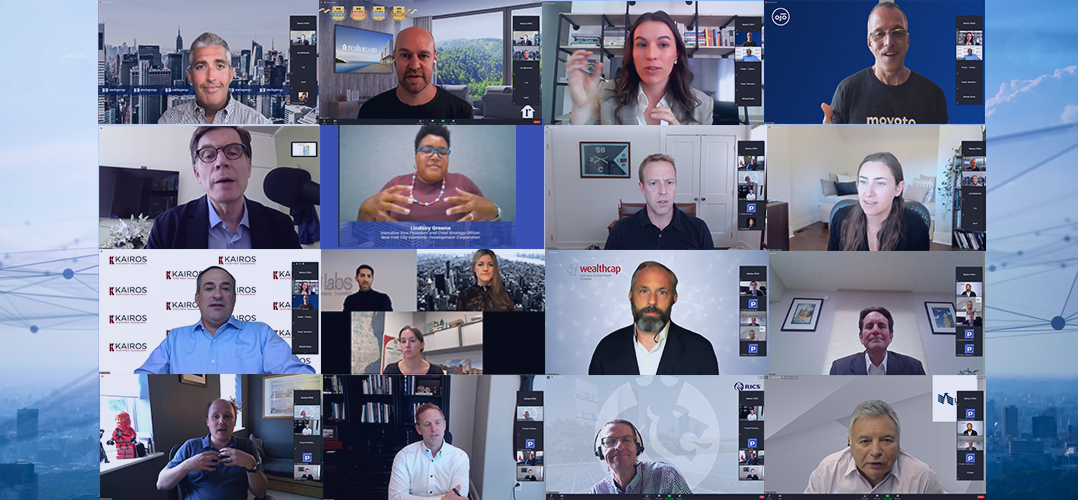With a wall of investment capital targeting real estate and proptech firms, the future has never looked more vibrant, delegates heard on Day One of the Propel Networking Summit

Aaron Block, Co-Founder and Managing Partner, Metaprop
“Confidence in proptech is at record levels,” signaled Aaron Block, Founder of venture capital giant MetaProp, on day one of the Propel Networking Summit.
Unveiling MetaProp’s Global PropTech Confidence Index, Block said that the VC’s latest Investor Confidence Index had peaked at 9.2/10, a record high, up from a previous ceiling of 8.8 in mid-2019.
Block noted that this was fueled partly by the momentous performance of proptech companies in the public markets in the second half of 2020.

Courtney Cooper, Principal, Alate Partners
Panelist Courtney Cooper, Principal of Alate Partners, said the trend showed no sign of slowing. “A lot of deals are happening, there’s a lot of money chasing the best kind of firms. There’s plenty of interest in proptech, and a lot of companies taking off that were founded pre-pandemic and post-pandemic.”
Ryan Coon, Rentals Category Manager – Realtor.com, suggested that this acceleration was promoting increased sophistication in the proptech industry and a better ability to listen to its clients. ‘What the pandemic has really forced upon us is a revisitation of customer needs,” he emphasized. “What are you actually trying to solve? Focus on that pain point, not the widget to solve it.”
This rallying cry established a positive mood for the entire day of panels, talks and networking opportunities. Launching the Propel Networking Summit, Nicolas Kozubek, Director, Propel by MIPIM, explained how the online initiative “was conceived on our side as a kick-off for our major event later this year”, namely, Propel by MIPIM NYC 2021.
Slated for 8-9 December 2021, Propel by MIPIM NYC will once more be an in-person event, representing a “great occasion for real estate and tech professionals to reconnect together after these difficult events for everyone”, according to Kozubek.
In the meantime, the Propel Networking Summit offered some key experts on a number of very current themes, ranging from investment dynamics to diversity and inclusion, sustainability and economic recovery post-Covid.
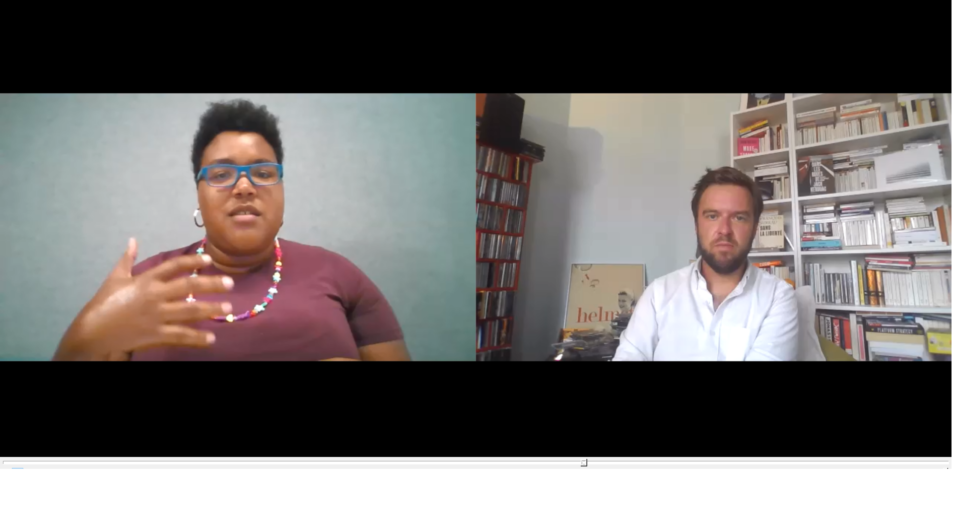
Lindsay Greene, Chief Strategy Officer – New York City Economic Development Corporation (left) and Nicolas Kozubek, Director Propel by MIPIM (right)
The pandemic’s transformational effects took top billing in the opening keynote from Lindsay Greene, Chief Strategy Officer – New York City Economic Development Corporation. Noted Greene: “One of the things that helped us get through Covid was that we had a fusion between the manufacturing sectors, life sciences, and healthcare in NYC. Those things are spawning more activity post-Covid.”
Tackling the equity issue, Greene added: “Covid has shone a really bright light on the fact that there are a lot of inequities in our country and a lot of that plays out economically. So, I think one of our biggest tasks is going to be how do you make economic growth work for those that it hasn’t worked for in the past.”
She also underlined that diversity and inclusion was a dynamic theme which the real estate industry needed to monitor. “You don’t make the same decisions if you don’t have representation at different levels, and you don’t account for the very needs of your workforce, if there’s no one to speak up for black or brown folks,” Greene warned.
Digging into the dynamics around US residential markets, a session moderated by Erin Hudson, The Real Deal reporter, found that record house prices are here to stay for the foreseeable future.
Chris Heller, CEO OJO Labs noted: “We are in a historically low inventory market in most markets across the country, pushing up prices, and we’ve had 12-14 months of this environment with more buyers than there are properties for sale.”
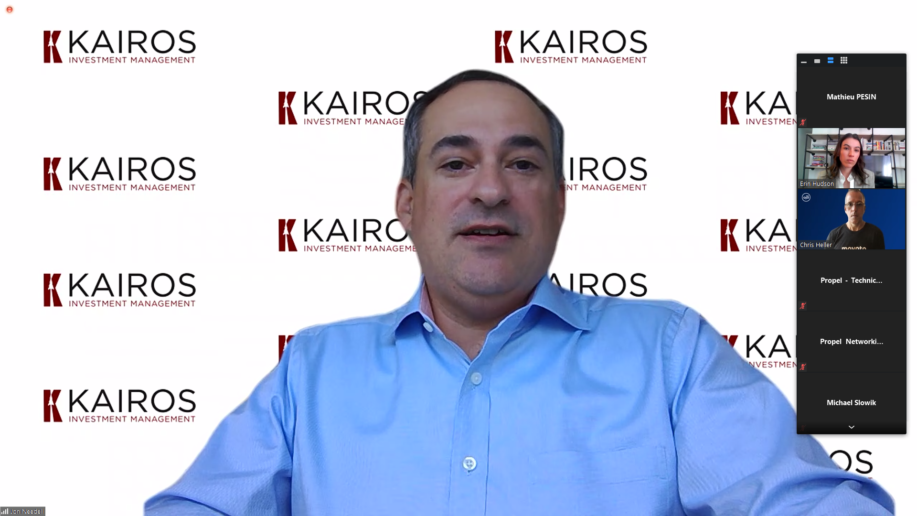
Jonathan Needell, President, Kairos Investment Management Company
Jonathan Needell, President, Kairos Investment Management Company said: “While the desire for home ownership is evolving, it is alive and well as the ultimate American dream.”
The next session showcased some key research data from AFIRE. “Innovation, demographic forecasting, economic and geopolitical stability, and supportive investment policies will be key for success in US real estate over the next decade,” revealed Gunnar Branson, CEO AFIRE, quoting the association’s most recent institutional investor study, conducted in March of this year.
Peter Grey-Wolf, Vice President, Wealthcap; Will McIntosh, Global Head of Research, USAA Real Estate; and Zeb Bradford, CIO, Metzler Real Estate went on to extrapolate AFIRE’s findings in a lively session.
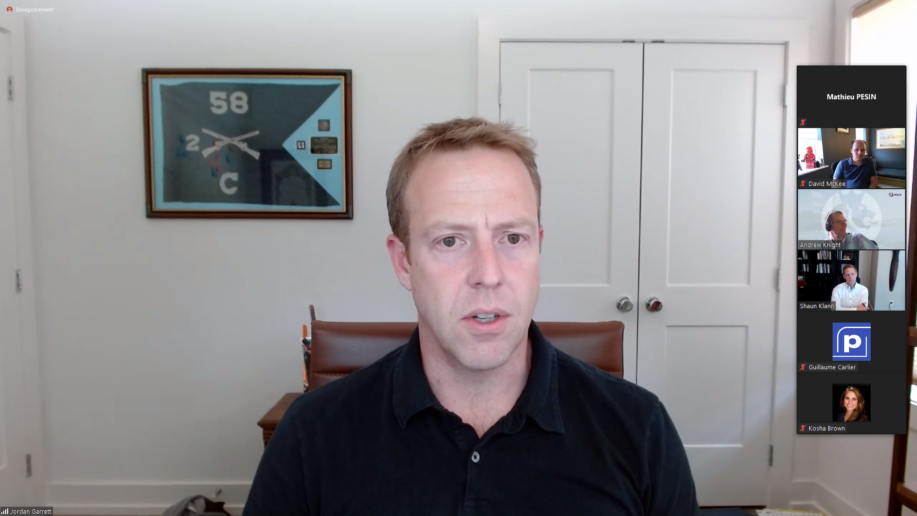
Jordan Garrett, Digital Twin and Edge Solutions Lead, Dell Technologies
Next, conference delegates heard how the potential of digital twins is driving the data race in real estate, creating challenges and opportunities across the industry.
Andrew Knight, Data & Tech Analyst, RICS, moderated a panel featuring David McKee, CEO, Slingshot Simulations, Jordan Garrett, Digital Twin and Edge Solutions Lead, Dell Technologies, and Shaun Klann, President, Willow Inc to tackle the latest developments in this area.
Said Klann: “When we look at the real estate industry at large, the data that we are looking to digitize is a complete mess. Real estate moves very slowly in all phases of its life-cycle. The pursuit of perfection in what a digital twin is can pause progress; the right solution is starting with a simple model.”
Added Garrett: “if you’re just embarking on the journey, you need to have that grand vision, that north star, of where you want to go to. But then it’s got to be executed in a lean sort of fashion. I would focus on the outcome – do we have the data that we need to construct the model that we need? Then we leverage simulation technologies.”
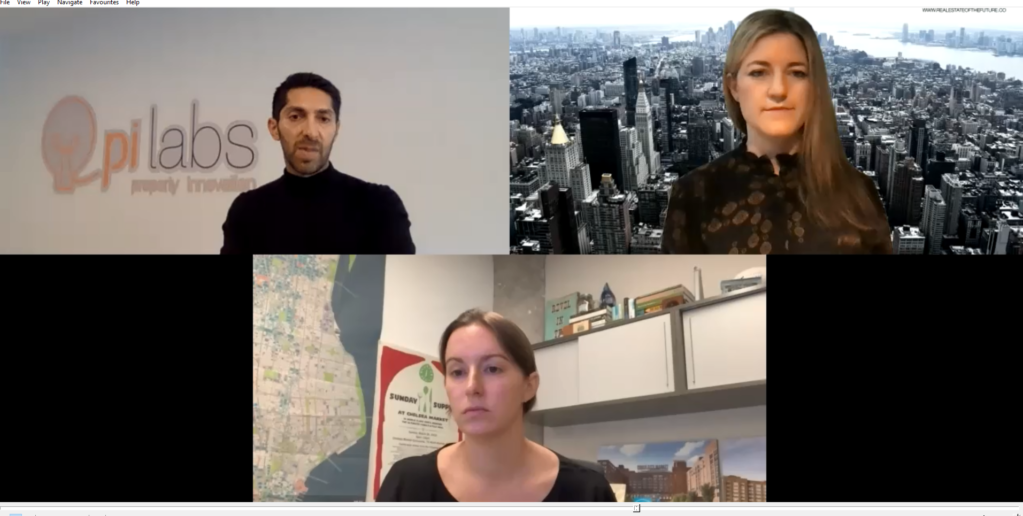
Faisal Butt, Founder, Pi Labs (top left); Nikki Greenberg, Founder of Real Estate of the Future (top right); Becca Rushin, Vice President of Sustainability and Social Responsibility, Jamestown (bottom center)
The first day concluded with a fascinating panel on the highly-pertinent topic of decarbonization in the construction industry.
Moderator Nikki Greenberg, founder of Real Estate of the Future, was in conversation with Pi Labs founder Faisal Butt and Becca Rushin, Vice President of Sustainability and Social Responsibility at Jamestown. Said Greenberg: “The construction industry has a lot of catching up to do.”
Said Butt on the topic of contech applications: “If you are building more efficiently and catching defects in real time, rather than two or three weeks later, you can reduce the wastage of materials, and reduce the overall carbon emissions of the project.”
Rushin said the industry was actively trying to engage in the topic: “There has been an increased expectation that companies know what their carbon emissions are and that they’re doing something to control that. That includes embodied and operational carbon.”
